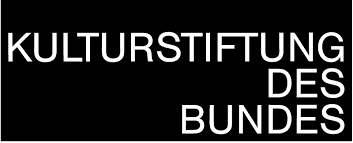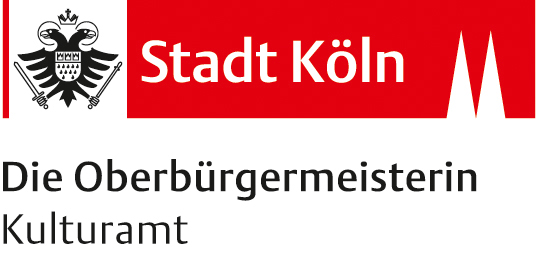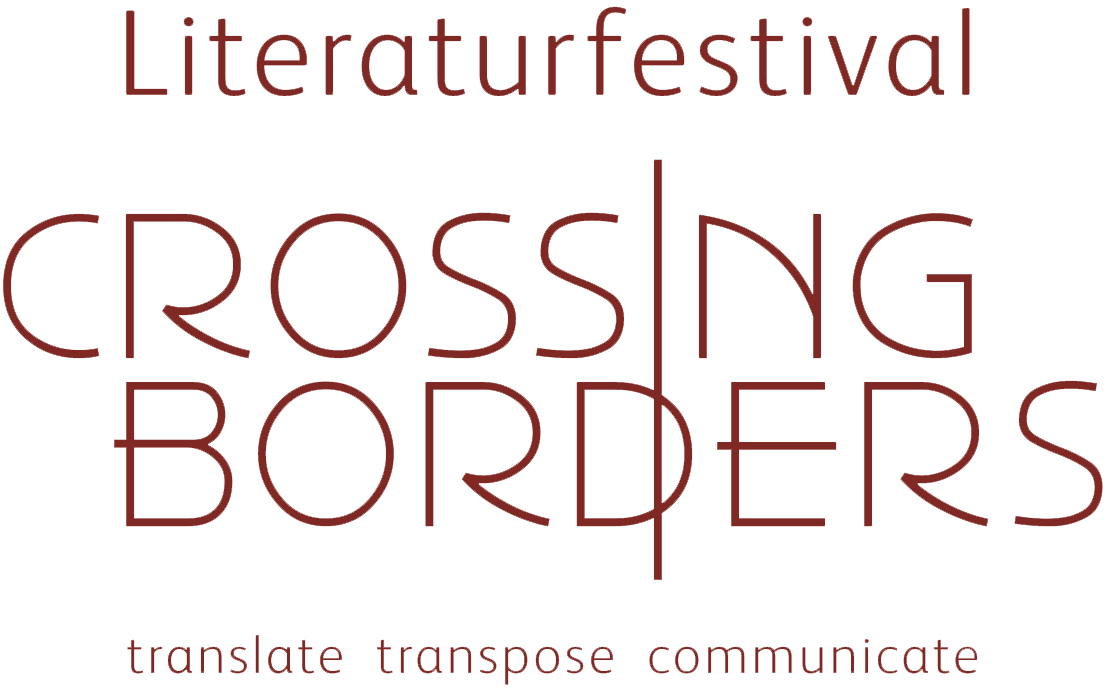Every language is beautiful when it awakens consciousness and evokes the sense of freedom in the downtrodden.
Poet Sëriñ Musa Ka, writing in Wolof, 1891-1966
The idea of the festival
CROSSING BORDERS: translate - transpose - communicate
How would someone from Africa explain to us what “ubuntu“ means?
How would we explain the German “Kummerspeck“ to them?
What positive connotation could be associated with the African “palaver“, often used derogatively in Germany?
Without linguistic communication with native speakers of other languages, more justice, peace and participation of migrants in our transcultural societies will not be possible.
Consequently, stimmen afrikas, the literature and education series, aims to overcome language barriers, make people aware of the meaningful act of translation, sound out all its dimensions and open up and enjoy the successful transposition into other worlds of life - African in our case.
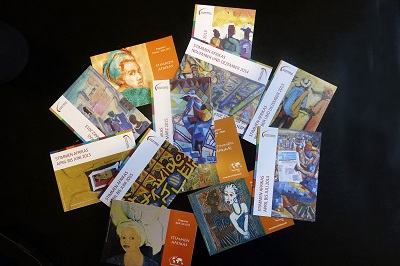
For the four-day celebration of its 10th anniversary, stimmen afrikas has invited 33 guests from 19 countries and welcomes everyone interested in literature, language(s) and Africa to take part in readings, workshops, discussions and performances. In cooperation with a guest curator, Nigerian publisher Bibi Bakare-Yusuf, we will look into cultural and literary translation, multilingualism and intercultural communication. The geopolitical situation and intercontinental migration are changing relations between Africa and Europe. African thinkers, Achille Mbembe and Felwine Sarr among them, question the "West's" claim to universality and create a vision of Africa, self-determined, with its diverse art and culture. [*dÜ, ich weiß,ich soll nur übersetzen, was im Text steht. Trotzdem geht mir durch den Kopf: Zur Selbstbestimmung gehören neben Kunst & Kultur insbesondere ökonomische Faktoren. Afrika hat alle Bodenschätze & Ressourcen dieser Welt und könnte sich von Europa sogar lossagen, um endlich seine Ruhe zu haben. Einschub-Vorschlag: Quite apart from the fact that Europe has, for centuries, been using Africa as an inexhaustible supplier of raw materials and natural resources.] stimmen afrikas wants to offer a stage for this new African thinking and the perspectives for more justice, peace and mutual respect.
In readings & performances, the writers will bring their languages to life and present their poetic, often deeply humanistic and humorous views of human life and community. Festival visitors can look forward to amusing and surprising entertainment, to the touching and colourful beauty of African literatures, to playful and intellectual door-openers into dimensions of multilingualism and transculturality, hitherto completely neglected.
Interdisciplinary workshops & panel discussions will provide an opportunity for professional exchange, encounters with authors and experts, with their submissions [*dÜ: Was ist mit ,Eingaben’ genau gemeint?], translations and literary works. "Cultural nomads" (Nam June Paik), i.e. artists and writers who work across borders, including migrant and diasporic artists and writers, are ideal teachers for balancing acts, conflict-laden at times, between cultures and languages.
To reorganise African societies, it is crucial that they "find their own voices“ and "worry about their audibility and intelligibility". Only with a strong voice can one engage in dialogue. Being able to speak with one's own voice allows a reconciliation with the manifold sources of one's own identity.
Felwine Sarr, Afrotopia, Matthes & Seitz, Berlin 2019
The history of communication with Africa is marked by violence - whereby languages also functioned as instruments of power. To this day, most school children from more than 2000 African language families are forced to learn in the so-called "official languages" spoken by the former colonial rulers - under threat of corporal punishment in case they do not. The final examination passed in the European foreign language is still the eye of the needle which leads to university. Foreign languages also dominate politics, the media and administrations.
The dichotomy of official languages for the educated and mother tongues for the illiterate led to the division of societies: As, to this day, African elites communicate with Europeans in the imperial languages, ethnic minorities and educationally disadvantaged groups in many African countries are excluded from important social and political processes.
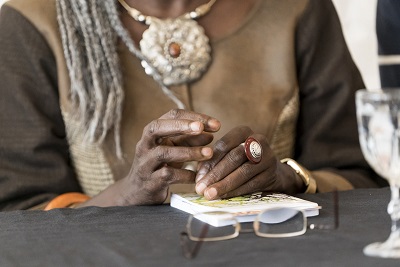
The brutal devaluation of mother tongues as "primitive" also led to a comprehensive humiliation of their speakers, it caused mental dissonances and a profound alienation from their origins and their emotional attachment to family and community. Language, after all, facilitates self-understanding and knowledge about the world, about unique cultures and their ethics and aesthetics.
„The physical violence of the battlefield was replaced by the psychological violence of the classroom. (...) The bullet was a means of physical submission. Language was a tool of spiritual submission.“ Ngũgĩ wa Thiong’o, Kenia, Decolonising the Mind, James Currey, 1986, edited in German by stimmen afrikas and the Afrika-Kooperative Münster.
stimmen afrikas has published the German translation of Ngũgĩ wa Thiong’o’s standard work, Decolonising the Mind, almost 30 years after its first edition in Kenya and has since been dealing intensively with the topic of language policies and linguistic diversity in Africa. This corresponds with the debates on decolonisation and the restitution of cultural assets, which have gained momentum and resonance over the past few years.
The growing appreciation of African cultures includes African languages and the fundamental questions: “How does all this concern us? Shouldn’t we finally abandon the presumptuous assumption of a European universalism - including the domination of its languages?“ After all, the forced uniformation of cultures and languages continues to violate an elementary human right.
We can start the necessary discussion about this in our own country, given that dealing with languages always means self-reflection as well. What are possible ways and instruments for transcultural mediation and practices?
• "Translating" means giving oneself and others access to hitherto unknown knowledge and experiences, exploring new orientations and values.
• "Translating" therefore also means being willing to endure differences and irritations, to acknowledge the limitations of one's own horizon and to accept the fact of not understanding something at times.
• "Translating" is also a task that can be fulfilled with passion and an enthusiasm for diversity, sounds, ambiguities and a variety of aesthetic options.
Reading and listening are also acts of translation that train empathy. Not least for our own sake. Our transcultural societies depend on various translation skills, in the broadest sense. The Western claim to universality in knowledge and values is reaching its limits, politically, economically and ecologically as well. The climate political catastrophe finally reveals that our individualistic and ruthless concepts of life based on growth have failed and that we need to explore new sources of knowledge and common sense-oriented concepts.
High mobility in our societies, whether voluntary or involuntary, also sets something in motion here, with us. New mental and linguistic perspectives open up. We compare, translate and transmit when we communicate in a different cultural environment. And in the course of this translation process we also, involuntarily, make politically and ethically relevant decisions. This is what stimmen afrikas wants to raise awareness for during this festival, to encourage participants to give in to the incentive of associating, connotating, imagining and to marvel at the linguistic richness and the pleasurable elegance of literary expressions.
In some African countries, the importance of indigenous languages is now being recognised. In Senegal, up to and including grade 6, classes are taught in Wolof; French is currently the official language alongside six national languages. South Africa has eleven official languages since 1996: English and Afrikaans, as was the case during apartheid, and nine African languages. School children learn in English, the "official language", but also in the nine African languages. Radio and television broadcast programmes in regional languages while newspapers appear in a variety of languages as well.
Not everything can be changed, but nothing changes by itself.
James Baldwin.
Wishing you many stimulating and enjoyable hours,
Christa Morgenrath
Förderer
